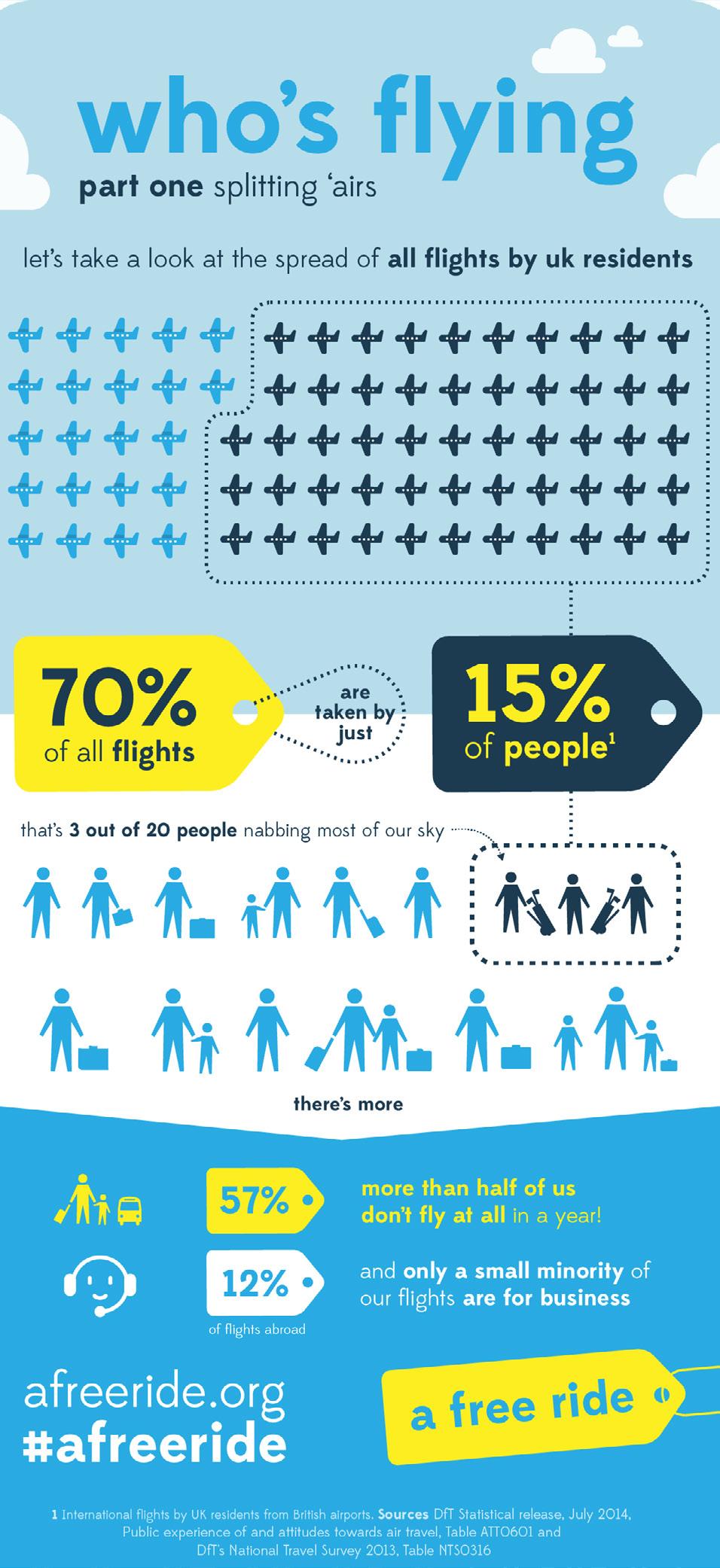
2 minute read
Time for a frequent flyer tax? A look at A Free Ride
In the climate change movement, you’ll find a spectrum of suggested actions when it comes to aviation.
At one end of the scale, groups such as the Extinction Rebellion feel that air travel should only be restricted to the most necessary cases unless it reaches a zero carbon target within five years. By comparison, the default airline industry position is a 50% reduction in carbon emissions by 2050, so 30 years away.
Advertisement
As we mentioned in the introduction, the basic argument (conveyed to us as well by Extinction Rebellion activists when we spoke to them outside the World Aviation Festival this year) was pretty straightforward and simple - this is an emergency, and so emergency measures need to be taken.
A few environmentalists will endorse, with qualifications, what some airlines are trying to do. As we said in the piece on carbon offsetting, easyJet got a cautious thumbs up from Jonathon Porritt in its recent announcement that it would carbon offset all flights.
In the middle however the most popular demand is one of a frequent flier tax, or for frequent flyer schemes to be banned altogether. To activists, they incentivise environmentally irresponsible behaviour to the point where some frequent flyers take mileage flights purely to preserve their status.
One of the most interesting projects which caught our eye, was the UK campaign ‘A free ride.’ What is noteworthy about this programme is that rather than take the line of all air travel being bad, it actually recognises that air travel has been a force for good:
“We really treasure the very real benefits that the technological miracle of human flight brings to our lives. So we need to find a way to maximise those benefits while minimising the harm caused.”

The campaign proposes offering one tax free flight a year, which might actually help more people on lower incomes to fly, with a progressively higher tax kicking in for every flight made after that.
That idea has since been adopted by the third party in British politics, the Liberal Democrats, who announced it as part of their 2019 General Election manifesto.
The fact that second tier parties are starting to embrace these ideas are a sign that they are becoming more mainstream, and it’s not unlikely that parties of Government will commit to these ideas in the coming years. Airline Marketing Monthly | December 2019
A note on the industry response
When CNBC contacted UK airline industry groups about frequent flyer tax proposals, they (according to CNBC) ‘slammed’ the ideas.
‘This is a drop in the ocean as to what can be done by the Government’ was one quoted response, while another talked about ‘economic and reputational harm.’ We think a better reaction here would be to engage with the principle behind the idea - everyone needs to play their part, be it individuals, the Govt or the industry. And then show how airlines are doing that.










